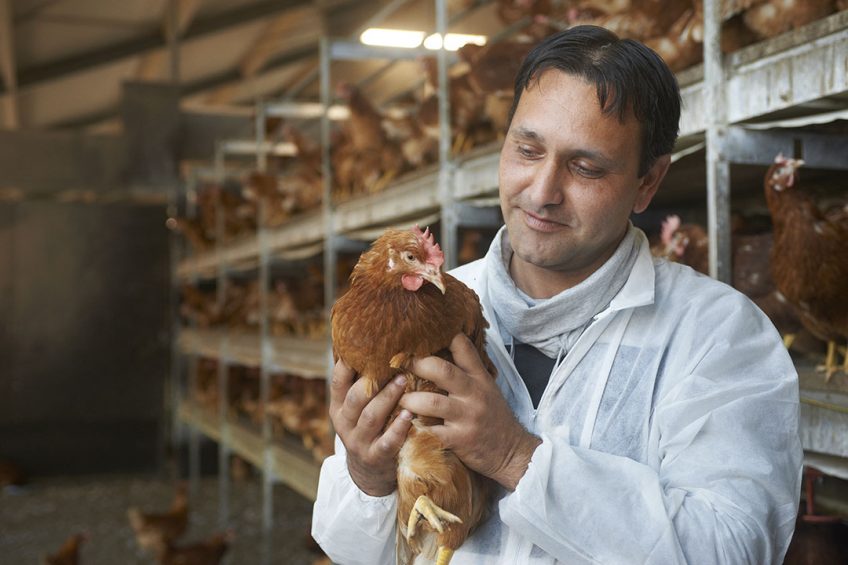Poultry producers lead the way on global animal welfare

According to the latest annual Business Benchmark on Farm Animal Welfare (BBFAW) report, poultry producers lead the way on global animal welfare.
In the past year, greater commitment, performance and disclosure on animal welfare actions has come from poultry producers and manufacturers. For the first time, food producers and manufacturers were the highest scoring sub-sector on farm animal welfare, overtaking retailers and wholesalers and outscoring restaurants and bars. And once again the poultry sector performed particularly well, with Noble Foods and Cranswick retaining their top tier 1 ranking, alongside UK retailers Marks and Spencer, and Waitrose in the 2020 Benchmark, which analysed 150 global good companies.
Brazilian companies rise 2 tiers
The largest improvements within the producers and manufacturers sector were made by 2 Brazilian companies – Marfrig Global Foods – which exports to more than 100 countries and has 21 global poultry plants, and Minerva Foods. Marfrig rose 2 tiers (tier 4 to tier 2), partly due to the publication of a formalised animal welfare policy and a 2020 animal welfare report. This clearly outlined the company’s operations and practices around animal rearing, its priorities, and commitments for the continuous improvement of farm animal welfare, as well as systems and processes in place to implement and monitor these.
Companies rising one tier
Companies that rose one tier included Unilever, which was singled out for improvements in the management and commitment section because of new statements on animal subjects, ranging from genetic engineering to cloning and the avoidance of antibiotics for prophylactic use. Vanessa King, Unilever Sustainable Sourcing manager, said improving animal welfare had been a commitment at the company for many years: “It aligns with our values and is important to our consumers.”
The future of bird welfare
According to a leading animal welfare behaviour specialist, greater use of on-farm hatcheries will reduce the stress of young chicks, which has an adverse effect on growth and mortality rates.
Premier Foods’s BBFAW Benchmark score has improved significantly since 2019, enabling the company to retain its tier 2 ranking. Premier Foods now reports on the proportions of animals in its supply chain that are free from close confinement, free from routine mutilations, and that are subject to pre-slaughter stunning. Mark Hughes, Premier Foods’s Procurement and Central Operations Director, said the firm was looking to improve the lives of farm animals by increasing the visibility and extending the development of good animal welfare practices across the whole supply chain, including within its primary producers and indirect users of animal-derived ingredients.
Thailand’s Charoen Pokphand Foods (CPF) has improved its ranking from tier 4 to 3 in the past year. CPF now reports on the proportion of laying hens in cage-free operations and the proportion of pigs free from tail docking, although reporting is currently partial and limited to certain geographies and products. CPF has reported fully on the proportion of animals subject to pre-slaughter stunning, covering all relevant geographies, species, and products. Among the other changes noted in the report were the increasing number of producer companies in Latin America and Asia Pacific acting on animal welfare. The overall average score for firms in Latin America rose from 29% in 2019 to 40% last year.
Payments by results scheme for animal welfare measures
Unsubsidised poultry producers in the UK could start receiving Government support for animal welfare measures.
BBFAW driving corporate action on farm animal welfare
Commenting on the report, Nicky Amos, BBFAW Executive Director, said the findings showed how BBFAW was driving corporate action on farm animal welfare, with around ⅔ of companies actively managing the business risks and opportunities associated with farm animal welfare, with 79% of firms committed to improvement objectives and targets. “The progress made by companies on managing farm animal welfare since BBFAW’s inception in 2012 is remarkable and should be applauded. However, as BBFAW enters its 10th year, our expectation is that companies need to demonstrate how their management commitments are translating into improved welfare impacts for animals on the ground.”












